Home » Jazz Articles » Interview » John Scofield: One For Swallow
John Scofield: One For Swallow

Jazz is best when itĪ»s completely carefree. The only problem is when you care about the music more than anything in the world, how do you get carefree?
—John Scofield
John Scofield
guitarb.1951
There was the '60s soul-jazz of Hand Jive (Blue Note, 1994) with tenor legend

Eddie Harris
saxophone, tenor1934 - 1996

Ray Charles
piano and vocals1930 - 2004

Mavis Staples
vocalsb.1939

David "Fathead" Newman
saxophone, tenor1933 - 2009
Scofield's many collaborations as a sideman (see separate article) are also revealing of his musical DNA. His earliest recordings were with

Gerry Mulligan
saxophone, baritone1927 - 1996

Chet Baker
trumpet and vocals1929 - 1988

Charles Mingus
bass, acoustic1922 - 1979

Billy Cobham
drumsb.1944

George Duke
piano1946 - 2013

Jay McShann
piano1909 - 2006

Grateful Dead
band / ensemble / orchestrab.1965

Phil Lesh
bass, electric1940 - 2024
Perhaps closest to Scofield's heart, however, is the music of

Steve Swallow
bassb.1940

Gary Burton
vibraphoneb.1943
It might have taken a while for Scofield to make such a record, but as the guitarist says: "I celebrate Steve all the time, because I love him so much. I'm a big fan of Swallow as a composer, and I know those tunes pretty well. I've played them for years. I grew up with them in a way. I always thought it would make a nice album for me. And for us to play—me and Steve and Bill [Stewart]. I thought I should do it while we're young," Scofield laughs.
Scofield turned 68 last December. Swallow will hit 80 in October. At 53, Stewart is the youngest. All three play like youngsters on Swallow Tales, though Scofield is quick to heap praise on his drumming companion of nearly thirty years standing. "Steve and I both marvel at how great Bill Stewart is. I've played with a whole lot of drummers," says Scofield, who can count

Billy Cobham
drumsb.1944

Jack DeJohnette
drumsb.1942

Idris Muhammad
drums1939 - 2014

Joe La Barbera
drumsb.1948

Dennis Chambers
drumsb.1959
When Scofield and Swallow listened back to the tapes of Swallow Tales, the first thing they mentioned was how great Stewart sounded, and how much he brings to the music. "He inspires us and makes the music move forward," says Scofield of Stewart. "He has this rhythmic urgency and drive that we just completely rely on. It's just like hopping in an incredible Ferrari and taking it for a spin when Bill Stewart plays the drums. It's something else."
So too, Swallow's playing. His melodic improvisations on this album are a joy, while the harmonic depth he brings to the music sets him apart from most of his peers. "Steve's from a certain period in history," Scofield explains. "It was in the '60s when he first became a big presence on the jazz scene. So, you can see the forces at play, in a way, where things started to open up harmonically—the music of

Wayne Shorter
saxophone1933 - 2023

Bill Evans
piano1929 - 1980
Within Swallow's compositions reside the simplicity and complexity of the best composers. "Steve loves songs, and he loves construction," says Scofield. "He uses an odd number of bars in the most natural way. Instead of all four-bar phrases he does different kinds of phrases, and interesting cadences, but they all make perfect sense. And I've always thought that some of this comes from his real knowledge of and interest in poetry, actually."
The poetry of Robert Creeley has long fired Swallow's imagination. The bassist/composer first put Creeley's poetry to music with the album Home (ECM, 1980), with

Sheila Jordan
vocals1928 - 2025

Gary Burton
vibraphoneb.1943
It was Burton who brought Swallow to the Berklee College of Music in the early '70s, where the young Scofield was studying. At the start of that decade Swallow had switched from upright bass to electric bass—a fairly radical move at the time. The main precedent in jazz for electric bass—and perhaps for popular music in general—was

Monk Montgomery
bass1921 - 1982

Bob Cranshaw
bass1932 - 2016
"I don't think Steve had any influences on electric bass, other than pop music. He was aware of [Montgomery] Monk, but he didn't sit down and analyse it as far as I know."
Scofield recalls how some years ago he and Swallow were watching a video of Monk Montgomery playing electric bass with the aforementioned Lionel Hampton band. "Steve just loved it. He said: 'Oh man, I never knew how good Monk Montgomery was.' As far as I know, Steve's influences on electric bass were the same as on upright. He told me he loved

Percy Heath
bass, acoustic1923 - 2005

Jimmy Garrison
bass, acoustic1934 - 1976

Wilbur Ware
bass, acoustic1923 - 1979
"That was a pre-Jaco [Pastorius] world," Scofield expands. "The way to play electric bass hadn't been codified and systemized, like it was, I think, after Jaco Pastorius. What Steve did was he brought his upright playing to the electric. In a way, it was exactly the same concept he had used on the upright bass. He thought it was the instrument of the future and it turned out that way. It sort of changed with Jaco and became the instrument of fusion, and the upright stayed for straight-ahead jazz."
Even before Swallow arrived at Berklee College of Music, Scofield knew his music. It was effectively the guitarist's introduction to jazz. "When I was in high school, I was a little blues snob," Scofield reveals, "but when I was sixteen or something, I started taking lessons from a guy who was a jazz guitarist. I thought, 'Well, blues is good, but jazz is really something.'"
Scofield started buying jazz records and credits his guitar teacher for turning him onto the Gary Burton Quartet. "We had a little music store and I bought Duster [RCA, 1967]. The next week I would go to the record shop where there was a nice lady who knew about jazz and she would say, 'Oh, since you play guitar you'll like this one' and she gave me

Jim Hall
guitar1930 - 2013

Art Farmer
flugelhorn1928 - 1999
Before the decade was out, Scofield got to see Swallow on stage. "In '68 or '69 I was old enough to go into New York City and I went to The Top Of The Gate, The Village Gate, and the Gary Burton Quartet was playing there. And there was Steve Swallow," Scofield relates. "When Gary Burton came to Berklee he was teaching all us kids the Gary Burton Quartet songbook, which was all Steve's songs. So, I've known these songs since the beginning of learning about jazz."
Unenamoured with teaching, Swallow's stay at Berklee College of Music was short-lived. When Swallow arrived, Scofield was about to drop out, first to record with Gerry Mulligan and Chet Baker, and then to go on the road with the Billy Cobham/George Duke band. Their paths did cross, though in a much more informal setting.
"Gary would teach until five o'clock and then he needed to do something while he was waiting for the rush hour to end. So, he would play with me and my room mates, a drummer, and a bassist, for a couple of hours every day. It was amazing. He brought Steve in and we jammed a couple of times. I remember when I met Steve, he could tell that I was a Jim Hall acolyte," Scofield laughs.
"Steve really did understand Jim's guitar playing because he played with him so much that I think he brought some of Jim to his electric bass, and I'm pretty sure he would agree with that. Part of our friendship has been the guitar."
These informal jams, as Scofield memory serves him, took place in '73 and '74, but when Scofield joined the Cobham/Duke band it would be another couple of years before he would reconnect with Swallow.
"I was on the road 1975 and 1976 non-stop," says Scofield. "Then the Cobham/Duke band broke up in the early part of 1977 and I was without a job." But not for long. Right around the same time

Pat Metheny
guitarb.1954

Pat Metheny
guitarb.1954
After fifteen years of using guitarists in his various groups—

Kenny Burrell
guitar, electricb.1931
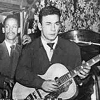
Joe Puma
guitarb.1927

Larry Coryell
guitar1943 - 2017
Jerry Hahn
b.1940
Tiger Okoshi
trumpetb.1950

Carla Bley
piano1938 - 2023
Swallow's credentials as a composer were long established, but the influence in that regard of Carla Bley, one of the most original jazz composers of the last sixty years, was perhaps inevitable. "Steve met Carla a long time ago and always loved her music," says Scofield. "He was the bassist in her band through the '70s and they became a unit. They are inseparable. I can't quite see them without each other.
"Carla is completely unique. Like Steve, she's another really personal voice in the jazz world. Carla and Steve are both such an important part of the music after bebop, in bringing in these other elements. Carla was one of the first people to bring in what could almost be perceived as folkloric elements into the music; it had always been there to a certain extent, but after Carla that stuff really came in, you know."
Swallow's compositions on Swallow Tales have all kinds of subtle threads running through them, but the common denominator throughout is singable melody. "What I like about the songs is that they're beautiful," affirms Scofield. "Steve is a lyrical player and writer and always finds beauty, even when it's as swinging and wild as it can get."
There is, as Scofield explains, more to Swallow's art than lyricism. "His music is so personal. It's not only the notes and his sound, but his rhythm, his way of playing with you. There's something that Steve does, and it's almost like Bach, the way he outlines the harmonies, without playing chords, but in single line. Steve really studied the cello suites. Jim Hall told me too, that he was studying Bach violin sonatas and partitas, and these are ways to get around on a string instrument and outline the harmonies in a linear, single note style. I copied these things from Steve a long time ago," acknowledges Scofield. "He really influenced me that way. Hopefully, I have made them somewhat my own."
On some of Swallow Tales' slower tunes, particularly the gorgeous ballad "Away," you can feel the presence of Jim Hall, and perhaps a little Bach, somewhere deep in the crevices. Swallow's lyrical playing in his trademark high register is a delight, but no less moving is Scofield's balladry. Despite all the evidence to the contrary, Scofield, perhaps surprisingly, does not consider himself a great balladeer.
"I wish I was better at ballads because I love them so much. Horn players can really sing on the instrument, but on a guitar the notes don't last as long, so it's a challenge. But I love ballads. I love songs. I've thought about it a lot. Steve, of course, is one of the guys who can really stop time with a ballad, or somebody like

Miles Davis
trumpet1926 - 1991
The tunes on Swallow Tales were chosen by Scofield. "Swallow just let me play the ones I wanted to play. He's always made his music available to me, and to the world actually," Scofield points out. You can go to Steve Swallow online and find the sheet music for all his songs, downloadable as a PDF. It's very well organized."
Familiarity with the material had its advantages when it came recording. "I've known these songs for so long that, in a way, making the record was kind of like making a record of standards that you're really familiar with, so you can really extemporize on them and improvise. Improvising becomes more effortless and natural. I feel the same way about Steve's tunes, you know, "Falling Grace," "Radio," "She Was Young"—these songs I've played the shit out of since the '70s."
The recording session took less than a day. "The aim was to do it quickly, almost as if it was like a jam session. We didn't labor over anything," explains Scofield. "Something happens when it's really spontaneous, and I wanted to keep it like that. Swallow will tell you, and I've seen this from all the great musicians, that jazz is best when it's completely carefree. The only problem is when you care about the music more than anything in the world, how do you get carefree?"
To care and not to care. A complicated equation, yet one that Scofield, Swallow and Stewart appear to navigate easily easy on Swallow Tales. Perhaps love and dedication are the keys. Dedication to, and love for, their instruments, their music and, of course, each other.
"Steve is a special human being," says Scofield. "There are a bunch of people, like me, for whom Steve has been a really important part of their lives, and I think all the guys he's played with would say the same things I do. He's a generous, giving, loving spirit, and you know, a complete motherfucker at the music."
John Scofield's Personal Picks: The Essential Steve Swallow
Few know Steve Swallow's music better than John Scofield. Here, the guitarist, a life-long fan of Swallow's compositions and playing, selects some of his favorite albums from Swallow's career. The Jimmy Giuffre 3
The Jimmy Giuffre 3 Fusion
(Verve)
1961
This was Swallow's first recording with the great clarinetist Jimmy Giuffre. It was also the recorded debut of Giuffre's new, drummerless trio featuring
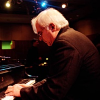
Paul Bley
piano1932 - 2016
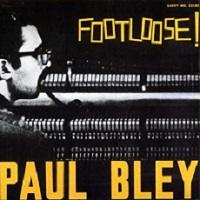 Paul Bley
Paul Bley Footloose
(Savoy)
1963
Paul Bley,

Pete La Roca
drums1938 - 2012

Keith Jarrett
pianob.1945
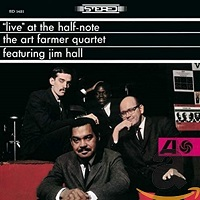 The Art Farmer Quartet Featuring Jim Hall
The Art Farmer Quartet Featuring Jim Hall "Live" At The Half Note
(Atlantic)
1964
Swallow made three recordings with the quartet of

Art Farmer
flugelhorn1928 - 1999

Walter Perkins
drumsb.1932

Jan Johansson
piano1931 - 1968
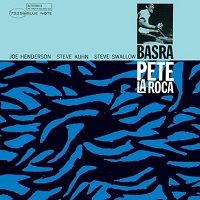 Pete La Roca
Pete La Roca Basra
Blue Note
1965
Drummer Pete La Roca was seemingly everywhere in the '60s, recording with

George Russell
composer / conductor1923 - 2009

Charles Lloyd
saxophoneb.1938

Joe Henderson
saxophone1937 - 2001
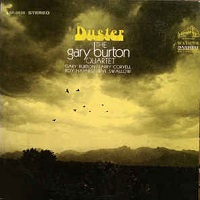 Gary Burton Quartet
Gary Burton Quartet Duster
(RCA)
1967
The compositional hands of Steve Swallow, Carla Bley and

Michael Gibbs
tromboneb.1937

Larry Coryell
guitar1943 - 2017

Roy Haynes
drums1926 - 2024

Stephane Grappelli
violin1908 - 1997
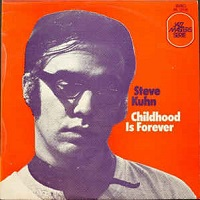 Steve Kuhn
Steve Kuhn Childhood Is Forever
(BYG)
1969
This was
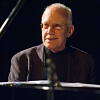
Steve Kuhn
pianob.1938
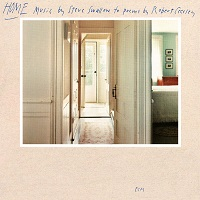 Steve Swallow
Steve Swallow Home
(ECM)
1980
The first of two Swallow albums inspired by the poetry of American poet Robert Creeley.

Sheila Jordan
vocals1928 - 2025

Dave Liebman
saxophoneb.1946

Lyle Mays
keyboards1953 - 2020

Bob Moses
drumsb.1948
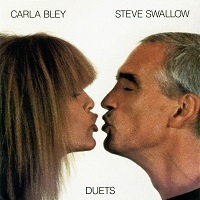 Carla Bley & Steve Swallow
Carla Bley & Steve Swallow Duets
(Watts/ECM)
1988
A love story. Bley and Swallow sound so musically attuned here. Bley's "Walkingbatteriewoman" and Swallow's "Ladies in Mercedes" have become classics. An album full of tenderness, joy, and wit. Perhaps the standout track, however, is the duo's emotive interpretation of the traditional song "Soon I Will Be Done With The Troubles Of The World." Scofield: "This is really beautiful. It's one of their first together."
Photo credit: Roberto Cifarelli
Tags
Comments
PREVIOUS / NEXT
John Scofield Concerts
John Scofield’s Combo 73
Bach Dancing & Dynamite SocietyHalf Moon Bay, CA

John Scofield, Bill Stewart, Vicente Archer
Boulder TheaterBoulder, CO

John Scofield Trio
Blue Note New YorkNew York, NY

John Scofield Trio
Blue Note New YorkNew York, NY

John Scofield Trio
Blue Note New YorkNew York, NY

John Scofield Trio
Blue Note New YorkNew York, NY

John Scofield Trio
Blue Note New YorkNew York, NY

John Scofield Trio
Blue Note New YorkNew York, NY
Support All About Jazz
 All About Jazz has been a pillar of jazz since 1995, championing it as an art form and, more importantly, supporting the musicians who make it. Our enduring commitment has made "AAJ" one of the most culturally important websites of its kind, read by hundreds of thousands of fans, musicians and industry figures every month.
All About Jazz has been a pillar of jazz since 1995, championing it as an art form and, more importantly, supporting the musicians who make it. Our enduring commitment has made "AAJ" one of the most culturally important websites of its kind, read by hundreds of thousands of fans, musicians and industry figures every month.





 Buy Now
Buy Now



















